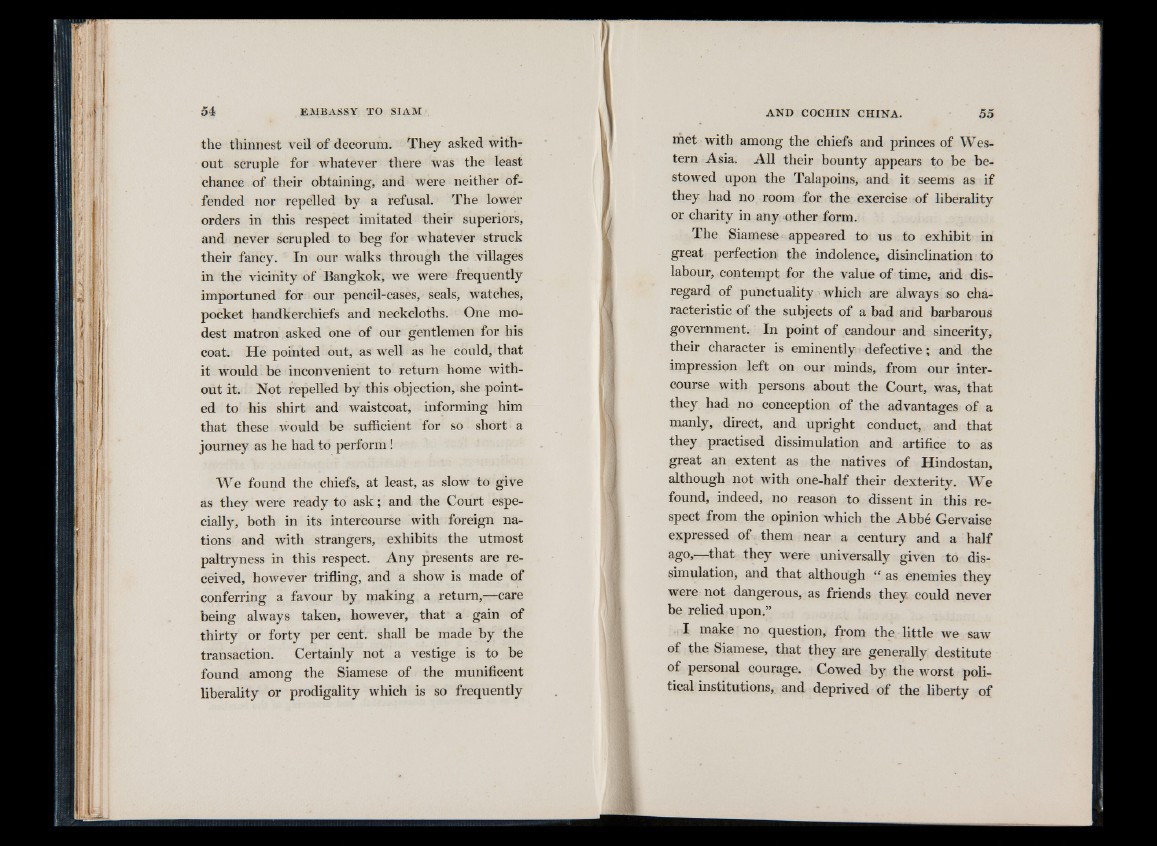
the thinnest veil of decorum. They asked without
scruple for whatever there was the least
chance of their obtaining, and were neither offended
nor repelled by a refusal. The lower
orders in this respect imitated their superiors,
and never scrupled to beg for whatever struck
their fancy. In our walks through the villages
in the vicinity of Bangkok, we were frequently
importuned for our pencil-cases, seals, watches,
pocket handkerchiefs and neckcloths. One modest
matron asked one of our gentlemen for his
coat. He pointed out, as well as he could, that
it would be inconvenient to return home without
it. Not repelled by this objection, she pointed
to his shirt and waistcoat, informing him
that these would be sufficient for so short a
journey as he had to perform !
We found the chiefs, at least, as slow to give
as they were ready to ask ; and the Court especially,
both in its intercourse with foreign nations
and with strangers, exhibits the utmost
paltryness in this respect. Any presents are received,
however trifling, and a show is made of
conferring a favour by making a return,-—care
being always taken, however, that a gain of
thirty or forty per cent, shall be made by the
transaction. Certainly not a vestige is to be
found among the Siamese of the munificent
liberality or prodigality which is so frequently
met with among the chiefs and princes of Wes-
tern Asia. All their bounty appears to be bestowed
upon the Talapoins, and it seems as if
they had no room for the exercise of liberality
or charity in any other form.
The Siamese appeared to us to exhibit in
great perfection the indolence, disinclination to
labour, contempt for the value of time, and disregard
of punctuality which are always so characteristic
of the subjects of a bad and barbarous
government. In point of candour and sincerity,
their character is eminently defective ; and the
impression left on our minds, from our intercourse
with persons about the Court, was, that
they had no conception of the advantages of a
manly, direct, and upright conduct, and that
they practised dissimulation and artifice to as
great an extent as the natives of Hindostán,
although not with one-half their dexterity. We
found, indeed, no reason to dissent in this respect
from the opinion which the Abbé Gervaise
expressed of them near a century and a half
ago,—that they were universally given to dissimulation,
and that although “ as enemies they
were not dangerous, as friends they could never
be relied upon.”
I make no question, from the little we saw
of the Siamese, that they are generally destitute
of personal courage. Cowed by the worst political
institutions, and deprived of the liberty of